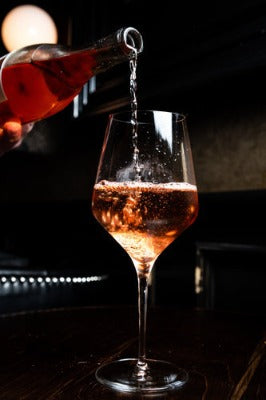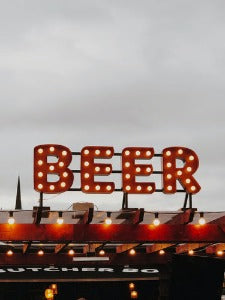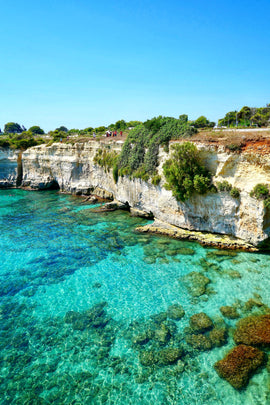In the movie Field of Dreams, James Earl Jones claims at one point that “the one constant throughout the years has been baseball”, but I actually think it’s rosé. The ancient Greeks didn’t know from slugging %, RBIs or the infield fly rule, but they made sure to dilute their field blends to a pinker shade of pale in order to remain lucid whilst deliberating democracy, composing odes or positing theorems. Ever since, rosé has rolled with the vicissitudes of history - from the Phoenicians bringing it to Provence in the 6th century BC, to the English Clairet obsession, to the Sutter Home “Blush” saturation of the 1970’s - falling in and out of fashion often enough to be the wine category perhaps most associated with trendiness. But Rosé is above all useful, the ideal utility player providing whatever is needed at a given moment, be it absorbing the excess juice from red wine production via the saignee method, rehabilitating forgotten varietals or furnishing a third quality in a list of three qualities. Rosé endures because there is always so much stuff for it to do. Here are two of our favorite recent efforts.
Located in the Cotes d’Auvergne in the southern Loire Valley, Domaine Miolanne allows the volcanic terroir to speak through their Gamay and Pinot Noir vines. The region is centered around one of the oldest French cities of Clermont-Ferrand, which is perhaps most famous for the Michelin tire factory. The vine has been cultivated here for at least 1500 years, with the appellation finally achieving AOP status in 2011. There are 2 separate areas of dormant volcanoes that have not erupted for at least 7500 years, and which have helped to shape the interesting topography of the region. Odette and Gilles Miolanne own 17 hectares of grains and vines in the southern end of the appellation. They planted vines in 1994 with 3 hectares of Pinot Noir and 1.5 hectares of Gamay. They produce both a red and rosé wine, and all farming is done without the use of herbicides or pesticides. Harvesting is by hand with minimal intervention in the cellar.
Les Vignobles Foncalieu stretches across 4,000 hectares between the Cité de Carcassonne and the Canal du Midi, two UNESCO World Heritage Sites. This vast territory is characterized by a mosaic of terroirs and denominations and has enabled the development of a wide range of wines, most of which are labeled PDO and PGI of Languedoc. It has been cooperative with strong values since 1967 and 650 winegrowers cultivate team spirit, authenticity, innovation and a shared passion. They produce a handful of different roses; our selection this month is made from Picpoul noir, a nearly forgotten varietal. The sibling of the more common Piquepoul blanc, its unusual name evokes the way in which hens (or 'poules' in French) would peck ('piquer') at the grapes scattered on the ground. It comes from one grower’s five-acre hillside vineyard in Cazouls, out of only 250 acres total of this rare grape that remain.
Think Pink!
Carrie Upson-General Manager
|
Region/Country of Origin: Côtes D’Auvergne, Loire Valley |
About the Winery: Husband and wife Laure and Jean-Baptiste come from a history of organic viticulture and recently took over Domaine Miolanne, converting the estate to full organics and making simple, honest wines that showcase the uniquely volcanic terroir of the Auvergne. There are two huge extinct volcanoes in the area, now preserved as national parks; the Domaine Miolanne sits smack dab in the middle of the two. And you can taste that volcanic soil so clearly in this ethereal, almost glacial, rosé, which sports the prettiest of orangey-pink hues. About the Winemaking: The wine comes from 3 hectares of Pinot Noir and 1.5 hectares of Gamay. The vines are 20+ years old and the grapes were hand harvested. Then it went through stainless steel fermentation via indigenous yeast. It was aged in stainless steel and later bottled 4-6 months after harvest. Tasting Notes: Floral and delicate with a very subtle smoky quality. It’s Provençal-esque in style, with a crisp delicious citrus finish and a wonderful pink-ness (think watermelon and bubble gum without being sweet), plus minerality to give the wine depth and a long finish. |
|
Winemaker: Laure Cartier and Jean-Baptiste Deroche |
|
|
Price: $20 btl/ $216 case |
|
|
Suggested Food Pairing: Grilled Seafood ceviche mild curries with rice goat cheeses |
|
|
Region/Country of Origin: IGP Coteaux d’Ensérune, Languedoc, France |
About the Winery: Les Vignobles Foncalieu are a union of cooperatives anchored in the heart of Languedoc. The territory stretches from the Corbières massif to the banks of the Mediterranean, from the Mistral- swept hillsides to the sun-caressed plains between Carcassonne and Béziers. It is in the heart of these landscapes, situated between ocean and mountains, that the wine- growers tend to 4,000 hectares of vines every day in order to offer Foncalieu the high-quality grapes used to produce exceptional wines. About the Winemaking: 100% Piquepoul Noir, a natural mutation of Picpoul Blanc. Soft pressed. Five hours of skin contact. Fermented under controlled temperature in stainless steel tanks. Five days resting on the lees. Two days of cold settling. Tasting Notes: Very pale pink color. Light bodied and clean with refreshing acidity, bright rose petal aromas and fruit notes of pink grapefruit and under-ripe strawberry. |
|
Winemaker: Les Vignobles Foncalieu Co-operative |
|
|
Price: $19 bottle/ $205.20 case |
|
|
Suggested Food Pairing: Grilled cheese sandwiches, light pastas, salads, sauteed fish. |
|





